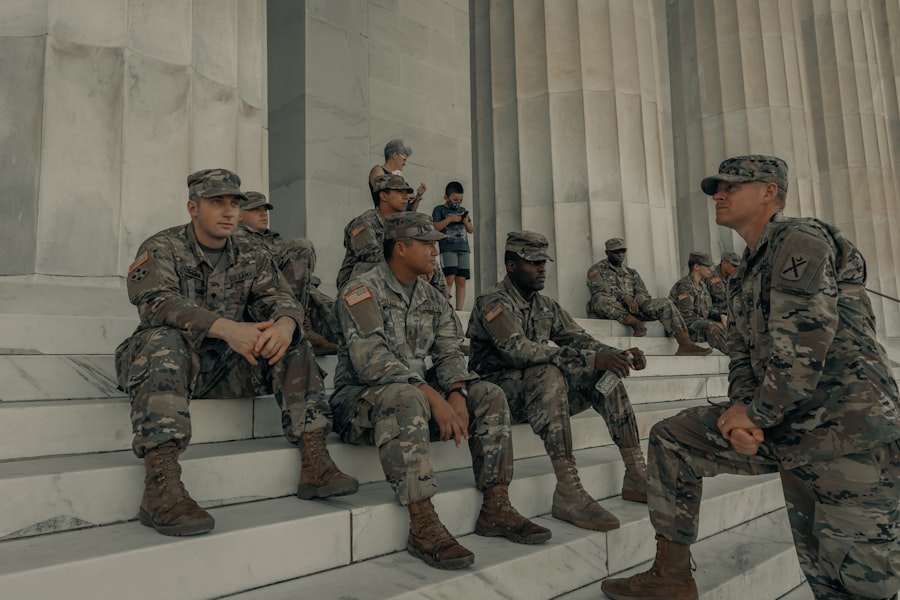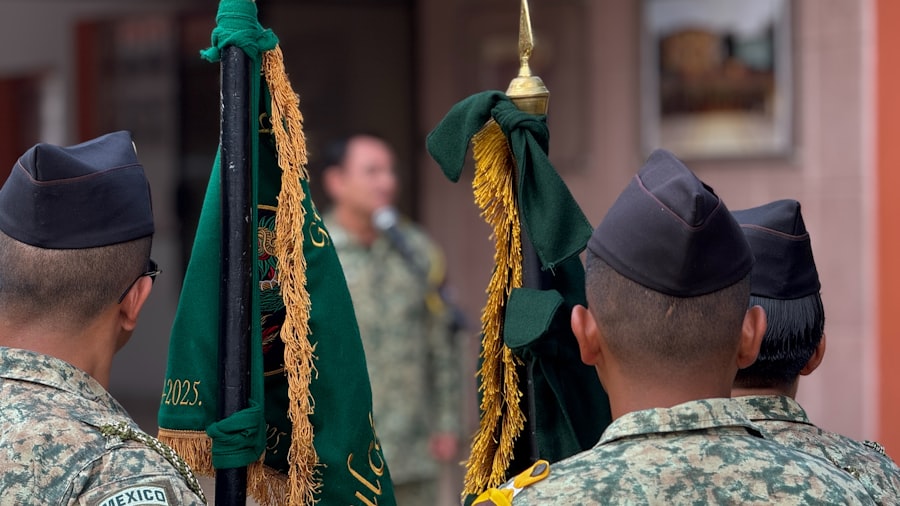Military tribunals have long been a contentious aspect of the legal landscape, particularly in times of war or national emergency. These specialized courts are designed to handle cases involving military personnel or civilians accused of offenses against military law or wartime conduct. Unlike civilian courts, military tribunals operate under a different set of rules and procedures, often prioritizing expediency and security over the extensive rights typically afforded in civilian judicial systems.
The use of military tribunals raises significant questions about justice, due process, and the balance between national security and individual rights. The historical context of military tribunals is rich and complex, with roots tracing back to the early days of the United States. They have been employed in various conflicts, from the Civil War to World War II, and more recently in the context of the War on Terror.
The legal framework governing these tribunals has evolved over time, reflecting changes in societal values, legal interpretations, and the geopolitical landscape. As such, the discussion surrounding military tribunals is not merely academic; it has real-world implications for how justice is administered in times of crisis.
Key Takeaways
- Military tribunals are special courts designed to try and determine the guilt or innocence of individuals accused of violating military law or the laws of war.
- The Supreme Court case of Hamdan v. Rumsfeld challenged the use of military tribunals to try detainees at Guantanamo Bay, arguing that they violated the Geneva Conventions and the Uniform Code of Military Justice.
- Proponents of military tribunals argue that they are necessary for national security and provide a more efficient and secure means of trying individuals involved in acts of terrorism.
- The Supreme Court ruled in Hamdan v. Rumsfeld that the military tribunals at Guantanamo Bay violated both the Uniform Code of Military Justice and the Geneva Conventions, leading to implications for the treatment of detainees and the conduct of future military tribunals.
- The decision has sparked public debate and raised concerns about the potential impact on national security, as well as the future challenges and legal battles that may arise as a result of the ruling.
Background on the Supreme Court Case
The Supreme Court case that brought military tribunals back into the national spotlight involved a series of high-profile detainees held at Guantanamo Bay. These individuals were captured during the War on Terror and were accused of terrorism-related offenses. The legal battles surrounding their detention and trial raised fundamental questions about the constitutionality of military tribunals and their alignment with American values of justice and due process.
The case drew attention not only for its legal implications but also for its moral and ethical dimensions, as it forced the nation to confront the balance between security and civil liberties.
Critics argued that these commissions lacked the transparency and fairness inherent in civilian courts, while proponents contended that they were necessary for national security.
The Supreme Court’s decision would ultimately set a precedent for how military tribunals would be viewed in relation to constitutional protections, shaping future legal interpretations and government policies.
Arguments for and against Military Tribunals

Proponents of military tribunals argue that they are essential for maintaining national security, especially in times of war or when facing unconventional threats. They contend that traditional civilian courts may not be equipped to handle cases involving terrorism or espionage, where sensitive information could be compromised during public trials. Military tribunals are seen as a means to expedite justice while safeguarding classified information, allowing for a more streamlined process that can respond swiftly to threats against the nation.
On the other hand, critics of military tribunals raise significant concerns about their fairness and adherence to due process.
Detractors contend that military tribunals can lead to unjust outcomes, as they may prioritize expediency over thorough examination of evidence and legal arguments.
This tension between security and justice remains a central theme in discussions about the legitimacy of military tribunals.
Supreme Court Decision and Rationale
| Case Name | Decision | Rationale |
|---|---|---|
| Roe v. Wade | 7-2 in favor of Roe | The right to privacy under the Due Process Clause of the 14th Amendment extended to a woman’s decision to have an abortion. |
| Brown v. Board of Education | 9-0 in favor of Brown | School segregation violated the Equal Protection Clause of the 14th Amendment. |
| Citizens United v. FEC | 5-4 in favor of Citizens United | The First Amendment prohibits the government from restricting independent political expenditures by corporations and unions. |
The Supreme Court’s decision regarding military tribunals was a landmark ruling that underscored the importance of constitutional protections even in times of crisis. The Court ruled that the military commissions established by the executive branch did not comply with existing laws and lacked proper legal authority. This decision emphasized that all individuals, regardless of their alleged crimes or status as enemy combatants, are entitled to fundamental rights under the Constitution.
The rationale behind the Court’s decision was rooted in a commitment to uphold the rule of law. The justices recognized that allowing military tribunals to operate without oversight could set a dangerous precedent, undermining the very principles upon which the American legal system is built. By affirming the necessity of due process and judicial review, the Court sought to ensure that national security measures do not come at the expense of individual rights.
Implications of the Supreme Court Decision
The implications of the Supreme Court’s decision on military tribunals were far-reaching, affecting not only the detainees at Guantanamo Bay but also shaping future policies regarding national security and justice. The ruling reinforced the notion that even in times of war, constitutional protections must be upheld, serving as a reminder that the rule of law is paramount. This decision prompted a reevaluation of how military commissions are structured and operated, leading to calls for reforms that would enhance transparency and fairness.
Moreover, the ruling had a ripple effect on public perception regarding military tribunals. It sparked debates about the appropriate balance between security measures and civil liberties, prompting citizens and lawmakers alike to reconsider how justice should be administered in an era marked by terrorism and global conflict. The decision served as a catalyst for ongoing discussions about legal frameworks governing national security, highlighting the need for accountability and oversight in matters involving military justice.
Historical Precedents for Military Tribunals

The history of military tribunals in the United States is marked by several significant precedents that have shaped their evolution over time. One notable example is the use of military commissions during World War II, particularly in cases involving Japanese-American citizens accused of espionage or sabotage. These tribunals were controversial and raised questions about racial bias and due process, ultimately leading to a reevaluation of how such cases should be handled in the future.
Another important precedent occurred after the September 11 attacks when military commissions were reestablished to try individuals accused of terrorism-related offenses. This period saw intense scrutiny over the legality and fairness of these tribunals, as many argued that they deviated from established legal norms. The historical context surrounding these precedents provides valuable insights into how military tribunals have been perceived and utilized throughout American history, informing contemporary debates about their legitimacy.
Comparison of Military Tribunals to Civilian Courts
The differences between military tribunals and civilian courts are stark and significant. Military tribunals operate under a distinct set of rules designed to address offenses related to military law or wartime conduct, often prioritizing expediency over extensive legal protections. In contrast, civilian courts adhere to established legal standards that emphasize due process, including rights such as trial by jury, legal representation, and protections against self-incrimination.
This divergence raises important questions about fairness and justice. Critics argue that military tribunals can lead to rushed proceedings that may overlook critical evidence or fail to provide adequate legal representation for defendants. Conversely, supporters assert that military tribunals are necessary for addressing unique challenges posed by terrorism and other threats to national security.
This ongoing debate highlights the complexities involved in balancing security needs with fundamental principles of justice.
Public Reaction to the Supreme Court Decision
The public reaction to the Supreme Court’s decision regarding military tribunals was mixed, reflecting deep divisions within American society on issues related to national security and civil liberties. Many civil rights advocates hailed the ruling as a victory for justice, viewing it as a reaffirmation of constitutional protections even in times of crisis. They argued that upholding due process is essential for maintaining public trust in the legal system.
Conversely, some segments of the population expressed concern that the decision could hinder efforts to combat terrorism effectively. They feared that imposing civilian standards on military operations might compromise national security by limiting the government’s ability to respond swiftly to threats. This dichotomy in public opinion underscores the ongoing struggle to find common ground between safeguarding individual rights and ensuring collective safety.
Potential Impact on National Security
The Supreme Court’s decision on military tribunals carries significant implications for national security strategies moving forward. By reinforcing constitutional protections, the ruling may compel government agencies to reevaluate their approaches to handling suspected terrorists and enemy combatants. This could lead to changes in how intelligence is gathered, evidence is presented, and trials are conducted, potentially impacting operational effectiveness in counterterrorism efforts.
Moreover, this decision may influence international perceptions of American justice systems. Upholding due process standards can enhance credibility on the global stage, demonstrating a commitment to human rights even amidst security challenges. However, critics argue that such adherence could also create vulnerabilities by limiting aggressive tactics deemed necessary for national defense.
The balance between maintaining robust national security measures while respecting individual rights remains a critical challenge for policymakers.
Future Challenges and Legal Battles
As discussions surrounding military tribunals continue to evolve, future challenges are likely to arise regarding their implementation and legality. Ongoing legal battles may emerge as new cases involving terrorism-related offenses come before courts, prompting further scrutiny of existing frameworks governing military commissions. Additionally, shifts in political leadership could lead to changes in policies surrounding national security and justice, potentially impacting how military tribunals are utilized.
Furthermore, advancements in technology and changes in warfare tactics may necessitate adaptations in how military justice is administered. As threats evolve, so too must legal frameworks designed to address them. This dynamic landscape will require ongoing dialogue among lawmakers, legal experts, and civil society to ensure that justice remains a cornerstone of national security efforts.
Conclusion and Reflections on the Supreme Court’s Decision
In conclusion, the Supreme Court’s decision regarding military tribunals represents a pivotal moment in American legal history, reaffirming the importance of constitutional protections even amid pressing national security concerns. The ruling serves as a reminder that justice must not be sacrificed at the altar of expediency; rather, it must be upheld as a fundamental principle guiding all aspects of governance. As society grapples with complex issues surrounding terrorism, warfare, and civil liberties, ongoing discussions about military tribunals will remain essential.
The balance between ensuring national security while safeguarding individual rights is a delicate one that requires constant vigilance and thoughtful consideration. Ultimately, this decision will continue to shape not only how justice is administered but also how America defines itself as a nation committed to upholding democratic values in an increasingly complex world.
In a landmark decision, the Supreme Court upheld the use of military tribunals, reinforcing their role in handling cases related to national security and terrorism. This ruling has sparked widespread discussion about the balance between civil liberties and national security. For a deeper understanding of the implications of this decision, you can read a related article that delves into the historical context and legal arguments surrounding military tribunals. This article provides a comprehensive analysis of how military tribunals have been used in the past and their potential future impact. To explore this topic further, visit this article.
WATCH THIS! 😱The Nazi Trial America Never Wanted You To See 😱
FAQs
What are military tribunals?
Military tribunals are courts that have jurisdiction over cases involving military personnel and offenses related to the military, such as violations of the Uniform Code of Military Justice.
What is the Supreme Court’s decision regarding military tribunals?
The Supreme Court upheld the use of military tribunals to try non-citizen detainees held at Guantanamo Bay for alleged war crimes. The decision was made in the case of Hamdan v. Rumsfeld in 2006.
What was the rationale behind the Supreme Court’s decision?
The Supreme Court ruled that the military tribunals established by the Bush administration violated both the Uniform Code of Military Justice and the Geneva Conventions. The Court held that the tribunals lacked the necessary authorization from Congress and did not provide the detainees with the due process rights guaranteed by the Constitution.
What impact did the Supreme Court’s decision have on military tribunals?
The Supreme Court’s decision led to changes in the military tribunal system, prompting the Bush administration to seek authorization from Congress for the tribunals. This ultimately resulted in the passage of the Military Commissions Act of 2006, which established a new legal framework for the use of military tribunals to try detainees at Guantanamo Bay.



